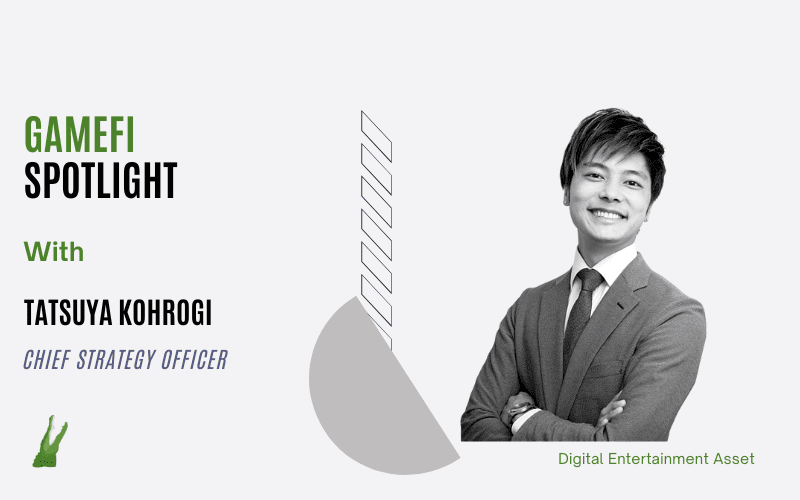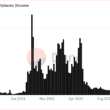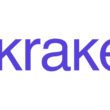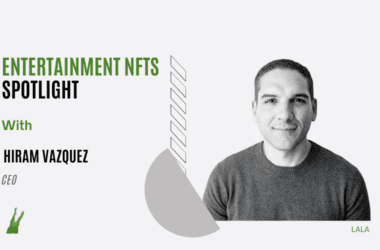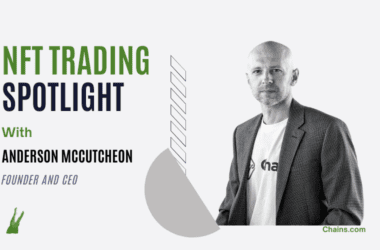The crypto winter has not deterred investors from pouring capital into blockchain and NFT gaming companies in the Web3 space. In Q3 2022, $1.3 billion was raised by blockchain game and metaverse projects, with blockchain gaming projects raising $156 million through investments and partnerships in September 2022 alone.
Blockchain games have a visible impact on the NFT market, as in-game assets backed by NFT technology are traded on marketplaces. From October to November last year, in-game NFTs had a total trading volume of $55 million.
With investors continuing to show strong interest in the blockchain gaming industry, Singapore-based global entertainment company, Digital Entertainment Asset (DEA), recently raised $10 million in funding from LA-based LDA Capital.
DEA operates PlayMining, which includes a GameFi platform, NFT marketplace, the PlayMining Verse metaverse currently in development, and the DEAPcoin ($DEP) token—the first play-and-earn token to be officially approved by Japan’s Financial Service Agency. Despite the wider crypto market downturn, PlayMining managed to increase its activity by 33% reaching on average 22,466 daily Unique Active Wallets in November, mainly driven by the announcement of its new Web3 game, Graffiti Racer.
Following a strong closing of 2022 for DEA, we get the company’s chief strategy officer, Tatsuya Kohrogi, to tell us what it takes to run a profitable GameFi platform and NFT marketplace amidst the bear market.
Please tell us about yourself and the story behind Digital Entertainment Asset.
My name is Tatsuya Kohrogi, also known as Tats. I am the Chief Strategy Officer and Head of Global Business at Digital Entertainment Asset (DEA). DEA was founded in Singapore by two Japanese Co-Founders, Naohito Yoshida and Kozo Yamada, in 2018.
What piqued your interest in the Web3 space and where did you first hear about it?
Prior to joining DEA, I worked at Facebook / Meta. I joined Facebook because I was inspired by the potential that social media offered for the creator economy. I saw firsthand how friends were making a living doing what they loved by sharing content and building communities on social media.
I first heard of Web3 from DEA’s co-CEO Naohito “Goro” Yoshida back in early 2020 when he mentioned creating a game where players can own digital assets and earn cryptocurrency from playing the game. Fast-forward almost two years and Facebook rebranded to Meta, which was when I began to actively get involved in the Web3 space. The more I thought about the trajectory of innovation, the potential to empower creators and create new forms of value through digital asset ownership just made sense.
What sparked the idea for PlayMining?
Back in 2016, former Sony Corporation Chairman Nobuyuki Idei told our co-founder Goro to study blockchain, as he predicted it would be the next revolutionary technology. After two years of observation, Goro noticed how blockchain technology was mainly used for finance/cryptocurrency and thought how great it would be if the in-game currencies that gamers earn in games could be actual money. That was the initial spark that led to the creation of our company Digital Entertainment Asset Pte. Ltd. (DEA) in 2018 and the DEAPcoin (DEP) token. DEA’s first Play-to-Earn game JobTribes was released in May of 2020, becoming the world’s first play-and-earn game that distributed a listed cryptocurrency. The name for the PlayMining platform comes from “playing” games and figuratively “mining” our DEAPcoin.
As PlayMining aims to put a stop to exploitation of creators like Apple, Facebook and Instagram have done, how much of a fee does the platform take from creators and third-party developers who build out their IP on Playmining?
Our platform is not open to all creators at the moment, so we do not take any fees from the creators. We actually pay the creators up-front for production costs and also pay royalties to NFT creators: over $6.8 million in royalties have been paid out during the past 2 years. For Third-Party developers, we work out a revenue-sharing model.
Compared to other Web3 platforms, our NFTs are utility NFTs integrated specifically for PlayMining games, and owners or renters of these NFTs can use them to play and earn DEAPcoin.
DEA recently raised $10 million from LA-based LDA Capital. How did that happen? LDA Capital valued our project’s revenue model and user traction. PlayMining earns continuous profits through sales on its NFT marketplace and GameFi platform, with over $56.6 million in revenue recorded in 2022. LDA Capital identified us as market leaders for our ability to maintain a highly profitable GameFi platform during the crypto bear market and committed to investing in us to support the future of empowering creators and community through the decentralization of the content creation process.
What makes PlayMining profitable and what does it take to run a profitable GameFi platform and NFT marketplace amidst the bear market?
Our revenue breakdown takes into account NFT sales, in-game item sales and token sales.
We keep building our platform, creating original content and releasing new features. And most importantly, we engage with our community as much as possible so that we always have enough insight to best serve our customers. We co-create content with our community as well, so we believe working closely with the community is the key.
What were the fundraising challenges DEA faced amidst the bear market? How did DEA overcome that?
On the macro level, VC investment was hard to secure. Negative events such as the implosion of FTX increase volatility and lower trust across the cryptocurrency space. Having revenue during this bear market definitely helped gain investor trust. We just continue to keep building!
Why is DEA set up in Singapore instead of Japan?
DEA was set up in Singapore rather than Japan because we were early to enter the crypto gaming scene. Token tax regulation hurdles back in 2018 made it nearly impossible to launch a token project in Japan at the time. However, the regulations changed in Japan just last month!
With the high-impact collapse of Terra and FTX this year, several countries are taking a closer look at regulatory compliance in Web3. What is it like for Japan, especially when it comes to P2E and P&E?
Japan is starting to lead the way in Web3 by adopting leaner regulations towards token project taxation and listing regulations. We are expecting to see a lot more games being released in 2023. Large gaming companies such as Square Enix have announced in yearly highlights that blockchain gaming will be one of their areas of focus. Oasys and DJT also have more game titles coming soon.
What are the most challenging aspects of your role at DEA and how do you overcome these challenges?
Managing a GameFi company is tough because you need to manage both the business side and also the tokenomics side. It is like managing a company and a nation at the same time, and you need to make sure that both succeed. Communicating often with all internal teams, external partners and community members, and constantly testing initiatives, sharing insights and aligning direction are the ways to overcome these challenges in my opinion.
What’s in the pipeline for DEA this year?
We will be focusing on development of upcoming titles Hero Spiral and Soul Fusers. We will also be collaborating with large Japanese gaming companies and expanding our IP collabs. Our first metaverse project, KamuiVerse, will be further expanded, with the PlayMining community co-creating both KamuiVerse and Soul Fusers. We also have the buyback program for our $DEP token (DEAPcoin) launching this month.
What do you think about the current state of the Web3 space? What kind of role is DEA playing in it?
The Web3 space is definitely still in its early stages and we are all in the building phase. DEA will help onboard non-gamers into Web3 gaming by creating more and more ways for people to earn digital assets in a fun way. Play and Earn is a great incentive for anybody to join the Web3 gaming space, most especially in places like Southeast Asia where access to safe and easy supplementary income can be a great book for many people. DEA is also working hard to support NFT artists and game developers through our site, to lead the way in creator empowerment.
Where do you think we could see Web3 in the near future?
The near future of Web3 will see us capturing value for things that are hard to quantify, such as emotions, memories, experiences, and feelings. Things with sentimental value can be very personal and to capture that in data, or put a form of value to something intangible, is not something that was possible in the past. Blockchain technology and tokenization is the future, and they will be implemented in every sector similar to how the web affected all industries. Regarding the gaming industry, large gaming corporations are entering the space and more AAA game titles will be released, which will become another gateway for mass adoption.
Any other Web3-related industry issue you would like to talk about?
The creation of more and more Web3 games will eventually lead to mass adoption. Non-gamers will enter the Web3 space through games.
When we look at the historical progression of gaming from Web1 to Web2 and onward to Web3, we can see that not all Web2 gamers were originally Web1 gamers. Many new gamers started playing games in the Web2 era. We believe that Web3 gamers will be different from Web1 and Web2 gamers, as the ability to earn digital assets with actual value will incentivize more people to try blockchain games.
****
Stay up to date:
Subscribe to our newsletter using this link – we won’t spam!
